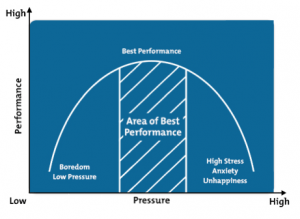During a recent discussion with one of our clients Sally Brown it became apparent that she had a wealth of knowledge regarding work life balance, stress and the huge impact it can have on your life. We are delighted that Sally is sharing her experience on the Valued blog.
Whilst it will take you no more than five minutes to read this, the impact on you, your staff and your business could be life long.
I’m sure the majority of you will respond ‘yes’ to the question posed above.
I guess you also agree with Richard Branson. I do have some concerns in terms of how do staff remain resilient, engaged, focused and productive when the everyday work can be emotionally demanding. Retention of staff is discussed widely, often in terms of career progression, employee perks or benefits for example. I want to focus here on staff resilience and emotional well-being, I believe these to be essential for you and your staff to be the greatest asset in your business.
It is known that work related stress is widespread and not confined to particular sectors, jobs or industries, and that it has a major impact on sickness absence, staff turnover, physical and psychological illness and indeed other issues such as human error, work related accidents and poor work and client relationships. Sickness also costs money both for businesses and the economy. In 2014 there were 15 million days lost due to stress related illness compared to 10.2 million days in 2012, with the median cost of each day being £550, that’s a lots of noughts. With presenteeism also on the rise, that is employees coming to work disengaged, tired, unmotivated and too stressed to work, businesses could see these costs rise if they don’t take action to address work related stress and emotional well being.
I’d like to highlight the damaging effects of stress and encourage you to take action to build or maintain resilience and well-being for you, your staff and your business.
Let’ s first consider some definitions:
Resilience: the ability to recover from setbacks, adapt well to change, and keep going in the face of adversity.
Stress: a state of mental tension and worry caused by problems in life or work, or is something that causes strong feelings of worry or anxiety.
Well-Being: when every individual realises his or her own potential, can cope with the normal stresses of life, can work productively and fruitfully, and is able to make a contribution to his or her community.
What does stress do to our bodies and brains?
When under stress our body releases stress hormones, including adrenaline and cortisol, which primes our bodies for a ‘flight and flight’ response. Our heart pounds faster, muscles tighten, blood pressure rises, breath quickens, and our senses become sharper. These physical changes increase our strength and stamina, speed our reaction time, and enhance our focus, ready to take on that life-threatening event, whatever it may be.
Unfortunately the human nervous system cannot distinguish between daily life stressors and life-threatening events. If we are stressed over an argument with a friend, the traffic jam on the M6, an inbox of emails, or other work issues for example, our body will still react as if we are facing a life or death situation.
Even when we experience low levels of stress the human body produces high levels of the stress hormones and therefore may never have the opportunity to reset back to normal.
The impact of high levels of stress hormones on our body, and brain function are well documented. Not wishing to cause more anxiety I will mention a few:- Stress raises blood pressure
- Stress shuts down your immune system
- Stress upsets digestive systems
- Stress reduces bone and muscle density
Pressure or stress in the workplace
Evidence tells us pressure or stress within the workplace demonstrates itself in work related behaviours such as absenteeism, conflict and aggression amongst staff, lower productivity, poor communication between management and employees, accidents and errors. Customer relationships may also be threatened if employees are suffering from stress and dealing with customers and clients within their role.
We also know that not all stress or pressure is bad, a certain comfortable amount can in fact help us to perform at our best.
The Inverted-U model, shown, was created by psychologists Yerkes and Dodson as long ago as 1908. It shows the relationship between pressure and performance.
When we experience the right amount of pressure, we do our best at work and perform well. However, if there’s too much or too little pressure, then performance can suffer.
It’s a bit like an elastic band if you don’t stretch it, it doesn’t do its job well, stretch it enough then it performs well and over stretch it, it breaks.
Ideally in order to be effective at work we need to remain in the area of best performance as indicated in the graph for significant proportions of the working day, week or month.
Where are you and your employees today?
So how do you keep yourself and your staff resilient at work?
There a few general things which can support stress management and build resilience: taking regular exercise, having a well balanced diet and learning to use relaxation techniques.
However we are all different and are exposed to different stressors in our work and home lives so one size does not fit all in terms of strategies for managing stress and building and maintaining resilience.
From my work with individuals, teams and organisations in relation to stress and resilience I would like to offer you just a few strategies:
- Recognising and accepting that every business is likely to have elements of work related stress goes a long way in planning to support and build resilience and well being within the workplace
- Raising awareness of stress and burnout with staff through education and training opportunities with practical tips on identifying stressors and coping with stress will maintain or build resilience and support well-being for individuals and teams
- Making time for ‘resilience coaching conversations’ focused on work related issues are critical. These conversations can help individuals to ‘slow down’, think, and process work related events more clearly and easily, and therefore perform well and be productive.
Time to reflect back to the question that prompted me to share my thoughts with you:
Are Your Staff Your Greatest Asset?
However I wish to pose another: Will they remain so?
Do you want to know more?
Can I help you; your staff and your business build resilience and well-being to support performance and productivity?
I’m always happy to listen, it really is an underrated skills. Please do contact me.
Sally Brown
Twitter: @Sally_Brown1962


